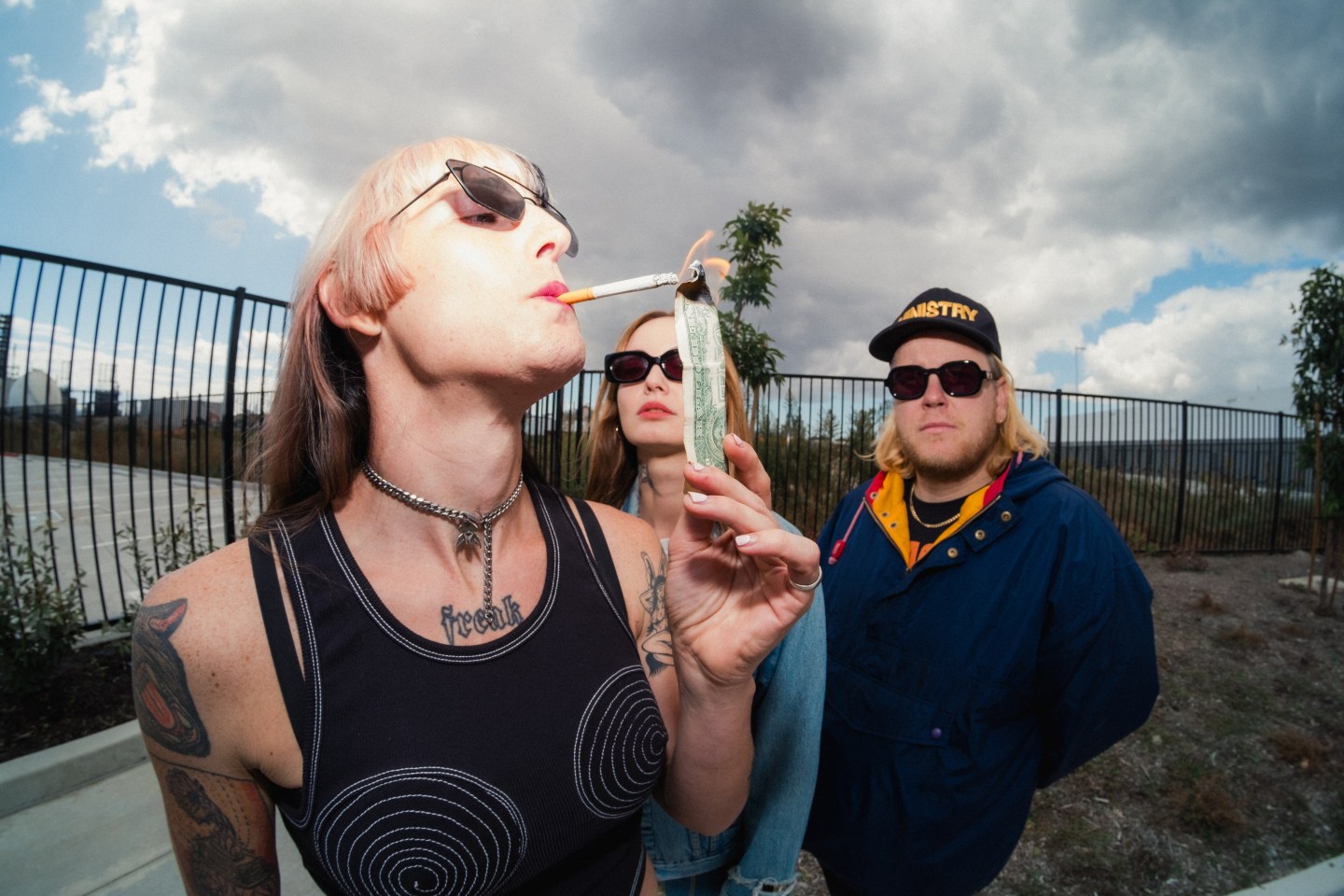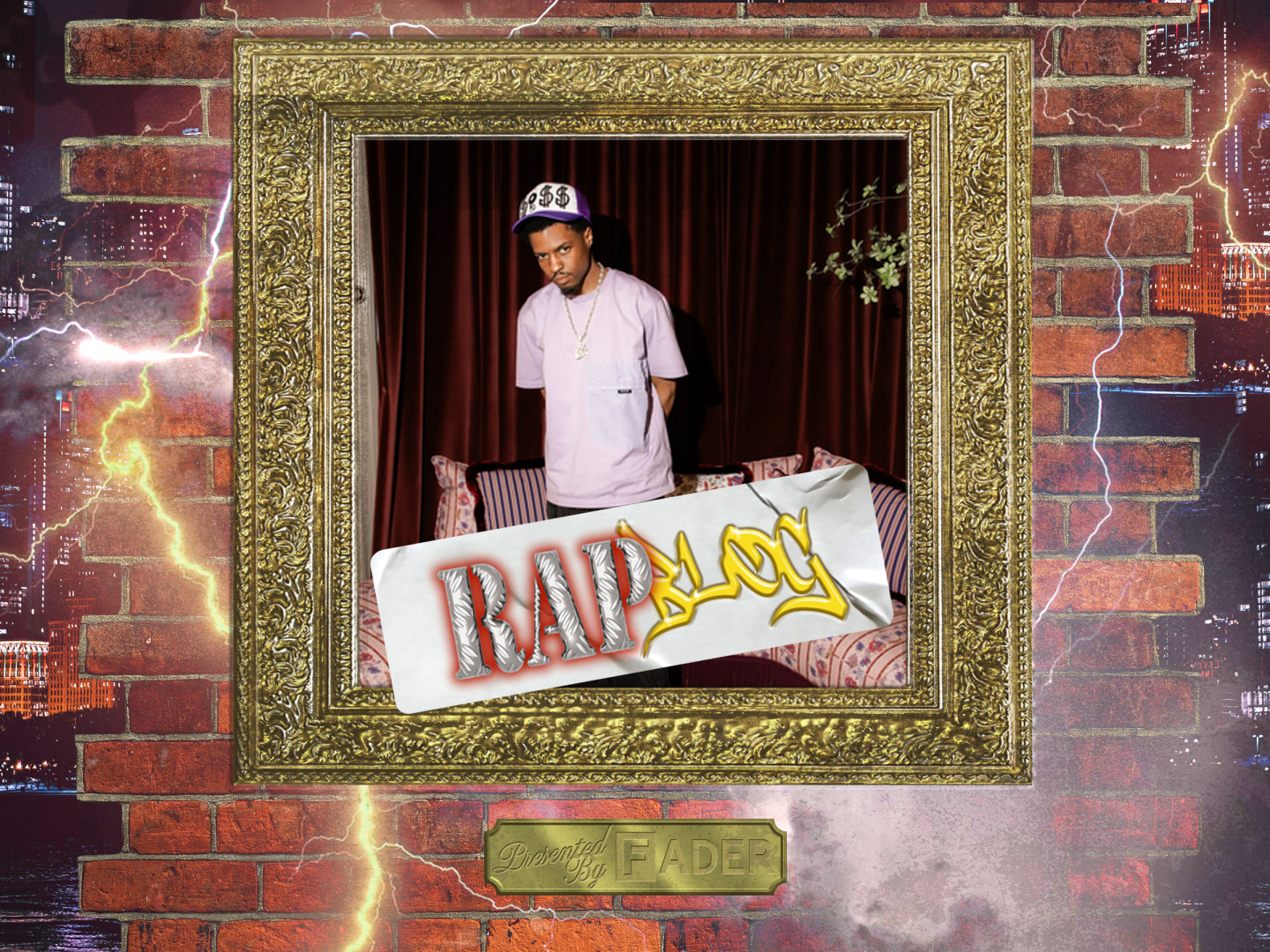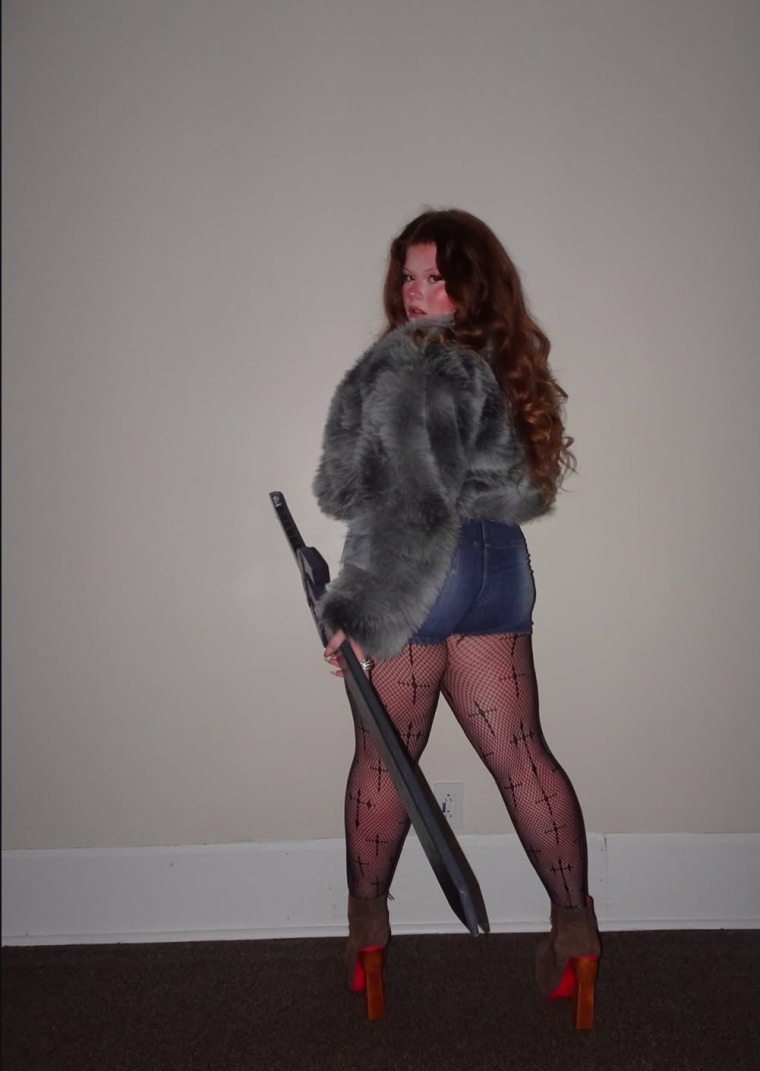Purest Form. Photo by Kris Kirk.
The Opener is The FADER’s short-form profile series of casual conversations with exciting new artists.
It’s 2013, and Riley Joyner is about to leave on tour to play bass in her old band. The florist where she works has a job for her: delivering a bouquet to Trent Reznor while dressed as a clown. The other members of her current band, Purest Form, shake their heads on our video call, and, immediately, come to a unanimous decision: from now on, their bassist will be performing in clown makeup with a bouquet on hand — just in case the Nine Inch Nails bandleader happens to be at their show.
Reznor’s pioneering group is probably Purest Form’s most notable influence, its impact is evident on all three songs from the L.A.-based band’s self-titled debut EP. You can hear it in the raw fury contained within Story Beeson’s voice, Joyner’s punishing bass, and the distorted feedback of Madison Woodward’s guitar. Still, Woodward says the band’s music was made in response to the subgenre “über-purists” out there; they hope that most record store employees will struggle with which section of the store to put the album in.
“Not to sound dorky, but the sounds we’ve [made since the beginning] feel like our ‘Purest Form,’” he explains, adding that the EP was a sonic “catch-all for everything we like.” Throughout our conversation, the members of Purest Form build a sprawling list of musical influences: Ministry, Slayer, Godflesh, and Genesis P-Orridge, as well as big beat electronic acts like The Prodigy and The Chemical Brothers. And while there are also a few mentions of several left-field electronic musicians ranging from Sophie and Aphex Twin, the most surprising name by far is Madonna, whose Ray of Light era contains the kind of “tripped-out, hypnotic dance music” that makes the self-titled so catchy, per Beeson.
Built layer-by-layer, the EP is an ever-evolving shapeshifter of a record, where a galloping synth can seamlessly match the pace of thrash-inducing riffs of “Optic,” or a series of deathcore breakdowns can be preceded by the stilted recitation of an old English death sentencing phrase on “Self Destruction.” There’s the scuzzy guitar of “Broke,” joined by a tinny rattle and post-punk synth, all accompanied by Beeson’s incensed screams that rage against the alienation of our techno-capitalist world. But her message is a lot more than just a surface-level “fuck you” or “I’m pissed off.” It’s a scathing critique of our rapid dystopian descent and our collective anger toward all the bullshit that made us listen to “dark” music in the first place.
For anyone who grew up with these bone-breaking genres before expanding their musical horizons, it’ll feel like a return to the days when someone else gave voice to how much you hurt. Purest Form understand that sometimes you need the relentless pummel of a classic industrial-style drum machine, or the sound of a power drill, or the crash of a rock falling down the stairs, just to drown out the extra noise.
“People say that heavy music incites violence, and I think it’s actually suppressed a lot of mine,” Beeson says, before Joyner agrees that the “visceral” force of listening to a rage-filled onslaught of rage-fueled screams has always helped to “silence the borderline [thoughts] in my brain.”
“It stops crazy thoughts in their tracks. Like, sometimes I’ll get caught in a spiral, and I’ll be like, ‘What are you fucking doing?’,” Joyner says, explaining that bands like Nine Inch Nails would keep her calm and centered through an “intense mindfulness.”
Beeson and Woodward continue to murmur in agreement as Joyner adds, “‘Just put some fucking heavy music on and be present.’”




